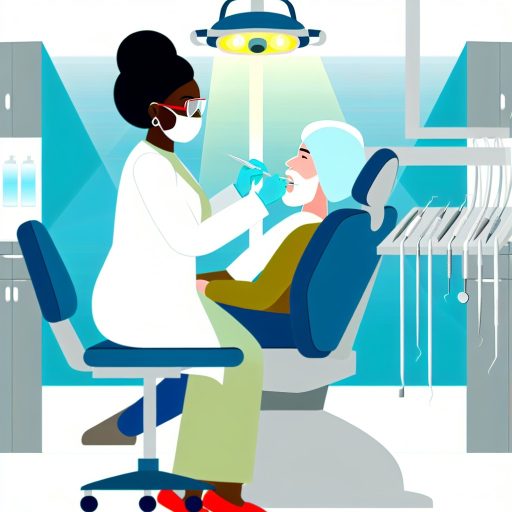Overview of Medical Genetics in Nigeria
Current Status of Medical Genetics
The field of medical genetics in Nigeria has rapidly evolved in recent years.
Several institutions now offer courses in genetics and genomics.
This expansion has led to a growing number of trained professionals in the field.
Public awareness about genetic disorders is increasing among the populace.
Moreover, new advancements in technology have improved diagnostic capabilities.
Challenges in the Field
Despite progress, Nigeria’s medical genetics field faces numerous challenges.
Access to genetic testing remains limited in rural areas.
Furthermore, financial constraints hinder research opportunities.
Awareness campaigns are crucial to educate the public about genetic testing.
Additionally, integrating genetics education into medical training is essential.
Impact on Patient Care
Medical genetics significantly enhances patient care in Nigeria.
Early diagnosis of genetic disorders improves treatment outcomes.
Genetic counseling supports families in making informed health decisions.
Furthermore, personalized medicine is becoming more prevalent in treatment plans.
This approach caters to individual genetic profiles for better efficacy.
Future Directions
The future of medical genetics in Nigeria looks promising.
Investment in research is necessary to drive innovation.
Collaboration with international genetic research organizations can enhance local capacity.
Moreover, expanding public health initiatives will increase awareness and access.
Lastly, implementing genetic education programs in schools can foster early interest.
Key Breakthroughs in Medical Genetics So Far
Emergence of Gene Editing Technologies
Gene editing technologies have transformed medical genetics significantly.
CRISPR-Cas9 is at the forefront of this revolution.
These tools allow precision alterations to DNA sequences.
Consequently, researchers can tackle genetic disorders more effectively.
Expanded Genetic Testing Capabilities
Genetic testing has become more accessible in Nigeria.
New panels now screen for multiple conditions simultaneously.
This capability aids in early detection of diseases.
Moreover, it provides personalized treatment options for patients.
Integration of Genomic Data into Patient Care
Healthcare systems now increasingly utilize genomic data.
This integration enhances patient diagnosis and management.
Customized treatment plans emerge from analyzing genetic profiles.
Furthermore, it fosters improved outcomes for patients with chronic illnesses.
Public Awareness and Education Initiatives
Awareness programs are vital in demystifying medical genetics.
They empower patients to seek genetic consultations proactively.
Educational campaigns also encourage community engagement.
As a result, more individuals understand their genetic health risks.
Impact on Patient Care
Enhancing Diagnostic Accuracy
Advanced genetics offers physicians precise diagnostic tools.
These tools reduce the time needed for accurate diagnoses.
Consequently, patients receive timely interventions.
This accuracy ultimately improves treatment efficacy and satisfaction.
Transform Your Career with Expert Guidance
Get personalized mentorship consulting that’s tailored to your unique path. Our expert advice is actionable and exclusive.
Get StartedTransforming Treatment Approaches
Therapeutic strategies are evolving due to genetic insights.
Targeted therapies are now commonplace for specific genetic mutations.
These advancements lead to increased treatment success rates.
Patients benefit from reduced side effects as well.
Improving Family Planning Options
Genetic counseling provides families with informed choices.
It helps prospective parents understand hereditary risks.
Moreover, this knowledge aids in family planning decisions.
Ultimately, it promotes healthier pregnancies and outcomes.
Encouraging Research and Development
The growth of medical genetics fosters innovations in research.
Researchers are motivated to explore new therapies.
Increased funding supports genetic research initiatives.
This progress leads to novel solutions for previously incurable conditions.
Role of Genetic Testing in Diagnosis and Treatment of Genetic Disorders in Nigeria
Importance of Genetic Testing
Genetic testing plays a crucial role in modern medicine.
It helps identify specific genetic disorders early.
This early detection allows for timely treatment interventions.
Patients with rare genetic diseases benefit significantly from genetic testing.
Moreover, genetic testing aids in understanding disease progression.
Enhancing Diagnosis Accuracy
Genetic testing enhances diagnosis accuracy for complex conditions.
Healthcare professionals can use genetic profiles to guide diagnosis.
The use of advanced testing technologies has increased precision.
As a result, misdiagnoses are becoming less common in Nigeria.
This improvement directly impacts patient outcomes.
Guiding Treatment Plans
Genetic data provides insights for personalized treatment plans.
Doctors can tailor therapies based on individual genetic makeup.
This personalized approach increases treatment efficacy.
For example, medication dosages can be adjusted based on genetic factors.
Consequently, patients experience fewer side effects.
Addressing Inherited Conditions
Genetic testing is vital for families with a history of inherited conditions.
It helps determine the risk of passing on genetic disorders.
Couples planning to start a family can benefit from carrier screening.
This screening can inform reproductive choices and options.
As a result, families make more informed decisions about their health.
Impacts on Public Health
Widespread adoption of genetic testing positively impacts public health.
It enhances disease prevention strategies across Nigeria.
Data from genetic testing can contribute to national health databases.
This information helps in tracking genetic disorders in populations.
Healthcare policymakers can formulate strategies based on comprehensive data.
See Related Content: Research in Physiotherapy: Nigerian Contributions
Integration of Genetic Counseling in Healthcare Services
Enhancing Patient Understanding
Genetic counseling greatly enhances patient understanding of genetic conditions.
This service helps patients make informed decisions about their health.
Moreover, genetic counselors provide crucial information about risks and inheritance.
They explain complex genetic information in an accessible manner.
Personalizing Treatment Plans
Integration of genetic counseling allows for personalized treatment plans.
By understanding genetic predispositions, healthcare providers tailor therapies accordingly.
This targeted approach often leads to better patient outcomes.
Patients receive treatments that address their unique genetic make-up.
Supporting Families in Healthcare Decisions
Genetic counseling provides essential support to families facing health decisions.
Counselors discuss the implications of genetic information for family members.
They help families navigate the complexities of genetic testing.
Furthermore, this support reduces anxiety and uncertainty among family members.
Improving Access to Genetic Testing
Effective genetic counseling improves access to genetic testing services.
This accessibility is critical for early diagnosis and management of conditions.
Additionally, it encourages patients to participate in proactive health care.
They feel empowered to pursue genetic testing for themselves and their families.
Fostering Collaboration Among Healthcare Providers
Genetic counselors collaborate closely with various healthcare providers.
This collaboration ensures cohesive care for patients with genetic conditions.
By sharing insights, teams create more comprehensive care plans.
This multidisciplinary approach enhances overall patient care experiences.
Learn More: The Impact of Diet on Eye Health: Nigerian Perspectives
Challenges Facing the Medical Genetics Field in Nigeria
Access to Genetic Services
Access to genetic services remains a significant challenge in Nigeria.
Many healthcare facilities lack the necessary infrastructure for genetic testing.
Additionally, geographic barriers hinder access in rural areas.
Overall, the distribution of genetic specialists is uneven across the country.
Awareness of Genetic Disorders
Public awareness regarding genetic disorders is notably low in Nigeria.
Consequently, many individuals do not seek early diagnosis and treatment.
Education campaigns can significantly improve awareness and understanding.
Moreover, healthcare professionals must receive better training in genetics.
Resource Allocation for Research and Development
Insufficient funding limits research in medical genetics.
Furthermore, existing resources often do not meet the growing demand.
Investment in this field is crucial to improve patient outcomes.
Collaboration with international organizations can enhance local research efforts.
Integration Into Standard Healthcare
Integrating genetic services into standard healthcare is still a work in progress.
Many healthcare providers lack the knowledge to refer patients appropriately.
Streamlining this process will facilitate better patient care.
In addition, policy changes can promote the inclusion of genetic services.
Uncover the Details: Anatomical Pathology Residency Programs in Nigeria

Case Studies: Successful Applications of Medical Genetics in Nigerian Healthcare
Genetic Screening for Sickle Cell Disease
In Nigeria, sickle cell disease poses a significant health challenge.
A notable case involves a Lagos-based hospital implementing routine genetic screening.
They screen newborns to identify sickle cell traits early.
This early detection allows for prompt interventions.
Consequently, it reduces complications associated with the disease.
Personalized Treatment Plans in Cancer Care
Medical genetics has enabled personalized approaches in cancer treatment.
For instance, a clinic in Abuja utilized genetic testing for breast cancer patients.
By identifying specific genetic markers, they tailored treatment therapies effectively.
This personalized care significantly improved patient outcomes.
Moreover, it minimized side effects from unnecessary treatments.
Increased Awareness Through Public Campaigns
Awareness of genetic disorders has greatly improved in Nigeria.
Several organizations have launched campaigns focusing on genetic education.
These initiatives emphasize the importance of genetic counseling.
They aim to empower individuals to make informed health decisions.
As a result, communities are more proactive in seeking genetic testing.
Advancements in Prenatal Genetic Testing
Advancements in prenatal genetic testing are noteworthy.
A facility in Ibadan offers comprehensive prenatal screening services.
These services include tests for a range of genetic conditions.
Expecting parents gain valuable information about their baby’s health.
This information helps in planning for necessary care and support.
Collaboration with International Institutes
Nigerian healthcare providers are collaborating with international institutes.
This collaboration enhances the research and application of medical genetics.
As an example, partnerships with U.S. genetic research centers are common.
These alliances foster knowledge exchange and technology transfer.
Consequently, they improve the overall quality of genetic healthcare in Nigeria.
Future Prospects for Medical Genetics
The future of medical genetics in Nigeria looks promising.
Investments in training healthcare professionals are increasing.
Moreover, new genetic testing technologies are becoming available.
These advancements will likely lead to more comprehensive care.
Ultimately, patients can expect improved health outcomes and support systems.
You Might Also Like: How Physiotherapy Can Improve Nigerian Lives
The Impact of Technological Advancements on Medical Genetics Services in 2024
Enhanced Genetic Testing Techniques
In 2024, advancements in genetic testing are revolutionizing patient care in Nigeria.
New techniques allow for faster and more accurate diagnoses.
Furthermore, these advancements reduce the time patients spend waiting for results.
For example, next-generation sequencing technology provides comprehensive genetic insights.
This technology enables healthcare professionals to tailor treatments more effectively.
Increased Accessibility to Genetic Services
Technological improvements are making genetic services more accessible across Nigeria.
Telemedicine platforms allow patients to consult with genetic specialists remotely.
This removes geographical barriers that previously limited access to care.
Moreover, mobile health applications facilitate patient engagement and education.
As a result, patients are more informed about their genetic health.
Integration of Artificial Intelligence in Diagnostics
AI is playing a crucial role in enhancing diagnostics in medical genetics.
Machine learning algorithms analyze vast datasets quickly and accurately.
This leads to improved predictive modeling of genetic conditions.
Consequently, healthcare providers can offer more personalized treatment plans.
AI tools are also assisting in identifying rare genetic disorders.
Collaboration Between Healthcare Providers and Tech Companies
Collaborations between healthcare providers and technology firms are becoming more common.
This partnership is driving innovation in genetic research and patient care.
For instance, Nigerian hospitals are partnering with biotech firms for cutting-edge solutions.
These alliances aim to streamline genetic testing processes and improve outcomes.
Furthermore, they focus on developing new therapies based on genetic insights.
Education and Training for Healthcare Professionals
Training programs are evolving to incorporate the latest genetic technologies.
Healthcare professionals are receiving education on the use of advanced testing methods.
This ensures they can effectively interpret genetic data and make informed decisions.
Moreover, ongoing education will be crucial as technologies continue to progress.
Ultimately, well-trained staff are essential for the successful implementation of these advancements.
Future Trends in Medical Genetics: What Can Patients Expect in the Coming Years
Personalized Medicine Gains Traction
Patients can expect a significant shift toward personalized medicine.
Genetic testing will become more accessible to the general population.
This will allow healthcare providers to tailor treatments based on individual genetic profiles.
Consequently, patients will experience more effective and targeted therapies.
Integration of Artificial Intelligence
Artificial intelligence will play a vital role in medical genetics.
It will help analyze vast amounts of genetic data quickly and accurately.
AI will support better predictions of disease risks and outcomes.
This technology will enhance decision-making processes for healthcare providers.
Enhanced Remote Genetic Counseling
Remote genetic counseling is becoming more prevalent.
Patients will receive expert advice from the comfort of their homes.
This convenience will encourage more individuals to seek genetic consultations.
As a result, patients can make informed health decisions based on genetic insights.
Focus on Preventative Healthcare
Preventative healthcare will become a primary focus in medical genetics.
Identifying genetic predispositions early enhances disease prevention strategies.
Patients will undergo routine screenings and interventions based on their genetic risk factors.
This proactive approach will lead to improved health outcomes over time.
Ethical Considerations and Regulations
As the field evolves, ethical considerations will also grow in importance.
Healthcare providers must address privacy concerns regarding genetic data.
Regulatory frameworks will be established to ensure patient rights are protected.
Patients will demand transparency in how their genetic information is used.
Additional Resources
Current Infectious Diseases Fellows | Emory School of Medicine
Recent Advancements in Emerging Technologies for Healthcare …




